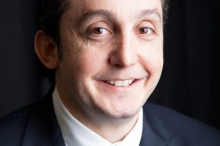

Michael S. Okun, M.D. is being honored as a Champion of Change in the Fight Against Parkinson's Disease.
I am humbled but also honored to be named a White House Champion of Change, and I hope that this opportunity will help to bring awareness and to galvanize our country to come to the assistance of the over 1 million Americans with Parkinson’s disease. The recent forecasting estimates are staggering. If accurate, the numbers suggest an urgent need to wake up and to recognize that we are on the cusp of an emerging pandemic. It is frightening to consider that in the world’s most populous nations, the number of people with Parkinson’s will double to almost 30 million by the year 2030. These escalating statistics may seem unbelievable, but they are real, and they are growing. Age is the unavoidable and undeniable risk factor underpinning the development of Parkinson’s disease. As life expectancy increases, so too do the number afflicted.
Most of my colleagues in academia may identify me with the development of neural network approaches designed to facilitate a deeper understanding of the brain and to develop new therapies in Parkinson’s disease and deep brain stimulation (DBS). They may have read one of hundreds of boring articles or book chapters I have penned over the course of many years. As a physician caring for Parkinson’s disease patients, I do not however, consider this my primary identity and purpose. I believe my calling is to alleviate human suffering, and to add meaning to the lives of those suffering from Parkinson’s disease and movement disorders.
In travelling the world as the National Medical Director for the National Parkinson Foundation (NPF), I have met tens of thousands of Parkinson’s disease patients, family members, and friends. One of the most common questions on their minds is “what can I do to make my life and the lives of those around me better?” In 2002, we dreamed of building a model Center for Parkinson’s disease care, education and research. In 2011, former Attorney General Janet Reno was our first patient at the new UF Health Center for Movement Disorders and Neurorestoration. Our philosophy was and still is very simple, “the patient is the sun (not the doctor), and we should all orbit around the patient.” We created an integrated model to facilitate true patient-centered care and also to provide access to, and to promote Parkinson’s research. The model is exportable, and we have a regular influx of international visitors to Gainesville, FL. These visitors seek to learn the secrets required to create a value based interdisciplinary care facility for Parkinson’s disease patients and families. Additionally, I have had the privilege to help develop and administrate over 40 international NPF Parkinson’s Centers of Excellence. These NPF Centers set the “care standard” and they continue to drive the quality and innovation needed for the future of Parkinson’s disease care and research.
Access to specialist care has been an urgent need in the US and abroad. Since 2006, I have had the honor of hosting the online international “Ask the Doctor Forum,” on the NPF website. To date I have answered over 20,000 questions from patients, families and physicians. Reaching the Parkinson’s community with education and arming them with facts and data has been a daunting challenge, especially since most of the information is available only in English. To overcome this critical need, my colleagues and former trainees graciously helped me to translate my book, Parkinson's Treatment: 10 Secrets to a Happier Life into over 20 languages.
Listening to thousands of Parkinson’s disease sufferers, I am deeply inspired. Their rich history and experiences provide all the motivation necessary to press on toward better care and better treatments. The four simple words “you have Parkinson’s disease” will pierce the heart and drain the dreams of 50,000 people worldwide each year, but we can make a difference in their lives today and every day.
Michael S. Okun, M.D. is currently a professor of neurology and co-director of the University of Florida Health Center for Movement Disorders and Neurorestoration. He is also the national medical director for the National Parkinson Foundation.


